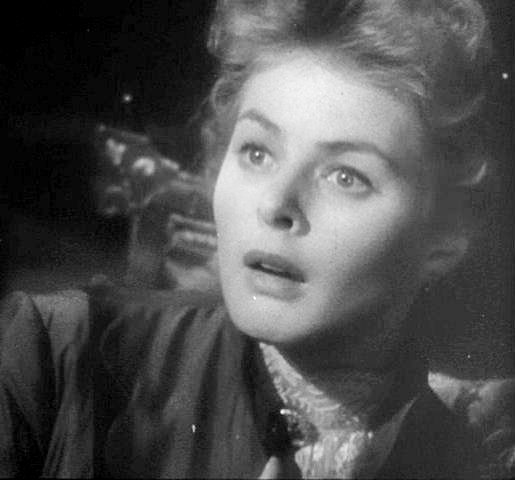Over twenty-five years ago,
when I was taking my first tentative steps as a mystery writer--no
publications yet, but a respectable stack of rejections--I was teaching
English at a liberal arts college in Illinois. (For reasons about to
become obvious, I won't say which one.) A student came to my office to
ask for an extension on an essay and, as justification, launched into a
litany of typical freshman woes. She couldn't get along with her
roommate, her chemistry professor hated her, the girls on her hall
partied late every night, making so much noise she couldn't sleep.
"And," she said, "I'm depressed because my older brother's in prison."
That
made me perk up. Prison? Crime? Maybe I could use this in a story.
After all, it's vitally important for mysteries to be realistic--at
least, that was my theory at the time.
I tried to sound
compassionate, not hungry for information. "I'm sorry to hear that," I
said. "May I ask why he's in prison?" Murder, I hoped. Murder murder
murder.
She sighed. "Arson," she said.
Oh.
Not murder. Well, arson's a serious crime, too. There must be ways to
make it interesting. Pushing all scruples about professional ethics
aside, I decided to keep digging. The student probably wouldn't mind.
She'd see it as a sign of sympathy, and she'd figure that increased her
chances of getting an extension. Yeah. She'd talk.
"That's too bad," I said, and paused delicately. "What was it--some sort of elaborate insurance scam?"
She shook her head. "No. He was mad at our neighbor, and one night he got drunk and burned down his barn."
Not
such an interesting crime after all. But maybe I could wring some
emotional drama out of the situation. "That must have been hard on your
family," I said. "All the tension and worry during the investigation,
the trial--"
She shrugged. "There wasn't really an
investigation. Or a trial. See, he was drunk, like I said. So his wallet
must've fallen out of his pocket when he reached for his car keys or
something, but he didn't notice, and the police found it right near the
barn. So the next day they came to our house and showed him the wallet
and said, `Joey, did you burn down Ed Swenson's barn?' And he said, 'I
guess.' So they arrested him, and he made some kind of deal or whatever,
and he went to prison. It's depressing. It makes it really, really hard
for me to write essays."
I gave her the extension. I
wasn't altogether convinced that she was deeply depressed about her
brother's plight, or that her concern for him accounted for her
essay-writing difficulties. She often came to our 8:00 class looking
hung over, and that made me wonder if she might in fact be partying with
those noisy girls on her hall, and if that might be why her essay
hadn't gotten written. But I owed her. She hadn't handed me a plot, but
she'd taught me a valuable lesson. Yes, mysteries should be
realistic--sort of. But the crimes in mysteries have to be interesting.
Real crimes don't, and usually aren't.

It
reminded me of my own brush with real crime, buried still deeper in the
past. I was in high school, my older sister was away at college, and my
parents had gone out to enjoy a Sunday evening of playing bridge with
friends. I had to catch the bus downtown to get to the Buffalo Jewish
Center in time for my B'nai B'rith Girls meeting, and I was running
late. (I promise these details will prove relevant later.) I was
scrambling to get ready and looking, as I recall, for a silk scarf. Back
then, I fretted about fashion accents such as silk scarves, because the
boys' B'nai B'rith chapters held their meetings at the Jewish Center at
the same time ours did, and we mingled before and after. The scarf
eluded me. Frustrated, I pulled out my top dresser drawer and dumped its
contents on my bed. I spotted the scarf, grabbed it, and ran for the
bus.
I
assume the meetings and the flirting went on as usual--I don't
remember, and it doesn't matter. Usually, I took the bus home after
meetings. But on this particular night, my best friend's father stopped
by to pick her up and offered me a ride home, too. (This detail might
also be relevant. It might have saved my life.) They dropped me off and
drove away, and I walked up the driveway to our front door, digging in
my purse for my key. As it turned out, I didn't need my key, because the
door was slightly ajar. That's strange, I remember thinking. My
parents--my mother, especially--always kept doors shut and locked.

I
pushed the door open and stepped into the house. I remember standing
there like an idiot for a full minute, maybe longer, looking around in
confusion. The living room was a mess--paintings pulled off walls, books
pulled off shelves, cushions pulled off couches. My parents had an
old-fashioned piece of furniture called a secretary, and all the drawers
had been emptied on the floor, papers and doo-dads scattered
everywhere. I couldn't understand it. Had my mother decided to take a
radical approach to spring cleaning? Had she decided to start on a
Sunday evening in October?
Then it dawned on my. Our
car wasn't in the driveway. My parents hadn't come home yet. Somebody
else had been in the house, and had turned it upside down.
I
ran next door, and my neighbors called the police--this was long before
cell phones, of course. I stood out on the lawn to wait. By now, I was
excited. At that point in my life, I had no idea of ever becoming a
mystery writer, but what teenager wouldn't be excited about having his
or her house burglarized? When the first police car arrived, I
accompanied the officers to the door. I'll never forget the older
officer's words as he took a long, careful look around our ravaged
living room.
"Yup," he said, nodding sagaciously. "Looks like we've had an entry here."
An
entry! Cop talk! It was just like TV, only better because it was really
happening. I wasn't thinking about what precious things the burglars
might have taken, only about how cool it all was.
The
younger officer said he'd check upstairs, and I raced up ahead of him,
leading him straight to my room. That was the worst moment. The officer
saw the dumped-out dresser drawer on my bed and pointed.
"They've been in here for sure," he said.
Humiliating as it was, I knew, even then, that one mustn't lie to the police. "Not necessarily," I said. "I left it that way."
He
raised an eyebrow, looked around upstairs for a few minutes, didn't see
anything of interest, and decided to check the basement. Again, I went
along, to show him where the light switches were. He was checking out
the laundry room when he said, "You know, I really shouldn't have let
you come down with me."
"Why not?" I asked, looking around for traces of the burglars.
"Because they might still be here," he said.
That
hadn't occurred to me before--or, evidently, to him. My excuse is that I
was a teenager who had no experience with crime or criminals.
Around
then, my parents got home. Alarmed by seeing police cars outside the
house, my mother took the situation in much more quickly than I had. She
ran up to the older officer.
"My daughter!" she cried. "Where's my daughter?"
He looked at her somberly. "She's in the basement, ma'am," he said.
My
mother promptly went into hysterics, imagining me in the basement,
chopped into a thousand tiny pieces. But I came upstairs intact moments
later and calmed her down.
My parents and I watched as
the police looked around, asked us questions, and took notes. I felt
relieved when they found that a window on the back porch had been forced
open, and concluded the burglars had gotten in that way. After my initial excitement had faded, I'd started to worry that I might
have been so intent on catching the bus that I'd forgotten to lock the
door. If I'd made things easy for the burglars, I'd have to face my
mother's wrath, and that scared me more than any burglars ever could.
But apparently it hadn't been my fault. Thank goodness.

The
police also decided the burglars hadn't finished going through the
living room. Chances were, they thought, the burglars had been in that
room when I got home, and they'd seen my friend's father's headlights in
the driveway and left through the back window before I made it inside.
So if I'd taken the bus and walked home from the corner, as usual, I
might have strolled into the living room and taken them by surprise.
Probably, they would have simply run off anyhow. Most burglars aren't
homicidal. But if they'd been on drugs or determined to leave no
witnesses behind--well, I'm glad Joanne's father picked that night to
give us a ride home.
The
police made a long list of things that were stolen, told my parents to
call if they noticed anything else was missing, promised to stay in
touch, and left. We never heard from them again. It was like an early
Seinfeld
episode. Jerry discovers his apartment has been burglarized and calls
the police, and the officer dutifully makes a list of stolen items.
"We'll look into it," he says, "and we'll let you know if we find
anything." "Do you ever find anything?" Jerry asks. "No," the officer
says.
Our
burglars did quite a job on our house. My mother's father had been a
jeweler, and he'd given her some nice pieces. She kept the most valuable
ones in a safe deposit box, but the burglars found and took everything
else, including my grandfather's pocket watch. They also took my
parents' good silverware. My parent didn't mind that so much--insurance
covered it, and they could pick a more modern set they liked more than
the one my grandparents had given them as a wedding present. But
insurance didn't cover the cash that was stolen. My mother didn't drive,
and she grew up during the Depression and didn't entirely trust banks,
so she liked to keep a fair amount of cash in the house. She hid it in
all sorts of clever places--in her sewing box, at the bottom of old
Band-Aid boxes stuffed with rubber bands and balls of string, between
the pages of books, between photographs and the frames holding them. The
burglars found and took almost every dollar. Amazing.

As
for me, at first I thought the burglars hadn't bothered going through
my room at all. But they had. As I got ready for bed, I kept noticing
signs they'd been there--my jewelry box sitting open, the contents of an
old purse dumped out on my closet floor. The burglars must've been
frustrated when they found nothing but costume jewelry and dried-out
mascara. So, evidently, they'd given up and moved on before spotting the
one truly valuable thing in my room--my grandmother's diamond watch,
sitting right out on my bedside table in a velvet-covered jewelry box.
(Years later, my husband and I named our daughter Sarah after my
grandmother; we gave her the watch as a bat mitzvah present, and she
wore it at her wedding. I'm glad the burglars missed it.) So I didn't
lose much, if anything, in the burglary--after all, I was a teenager and
didn't own much worth stealing. Even so, it felt unsettling to know
strangers had been in my room and handled my things. I slept with the
lights on that night.
I'll never write a mystery about
that true crime. If I did, nobody would publish it--it had some quick
comic touches but no real drama or conflict, and any attempt to build
suspense would collapse into anti-climax. But I gleaned some insights
from the experience, insights into the way even a non-violent crime can
leave people feeling violated. Not too long ago, I drew on those
insights when I wrote "The Shopper," a story about a librarian whose
house is burglarized while she's at home, asleep. Here's the description
of how she felt the next day:
She
felt like a stranger in her own home now, constantly reaching for
things that were no longer there, every ten minutes discovering fresh
evidence of The Shopper's intrusion--a bottle of aspirin missing, a box
of tissues moved. She'd been so proud of this house, had felt so safe
here. It was tiny, and only rented, but it was her symbol of security
and independence, her proof she could take care of herself. And now some
stranger called The Shopper had destroyed all that. Her privacy had
been denied, her contentment sneered at. She felt suddenly vulnerable.
In
that story, I also drew on something a co-worker told me about the time
her purse was stolen when she carelessly left it unwatched in her
grocery cart. She came home to find the thief had returned her reading
glasses by leaving them in her mailbox. That true crime story also
didn't lead to much: My co-worker was nervous for several days, afraid
the thief might be stalking her, but nothing else ever happened. The
thief did a bad deed, then did a good deed, and that was the end of it.
In my story, the burglar
does
prove to be a stalker. I worked my small insight from that long-ago
burglary and my co-worker's sliver of experience into a fair-play
whodunit: The librarian notices that two men she's never seen before
have started showing up at the library every day, and she has to unravel
several clues to figure out which one is the burglar who's probably up
to no good. (I'll casually mention that "The Shopper" is one of the
stories in my collection,
Her Infinite Variety: Tales of Women and Crime. Not that I'm trying to sell books or anything.)
True
crime seldom gives us everything we need for our mysteries. The
criminals usually aren't clever enough, the cops sometimes aren't quick
enough, the crimes themselves often aren't interesting or conclusive
enough--often, they end without any real climax, any definite answers.
They end not with a bang but a whimper. But we can still gather scraps
of ideas and insights from our brushes with true crime, and from true
crimes we hear about or read about. If we add some imagination, we might
end up with mysteries readers will find satisfying.
Maybe
I should give more thought to writing a story about someone who burns
down a barn. After all, it worked out pretty well for Faulkner.
I'm delighted to say that I'm interviewed in the current issue of
The Digest Enthusiast, a fascinating publication that celebrates genre magazines. The interview (it's a long one) focuses on my stories for
Alfred Hitchcock's Mystery Magazine,
especially the series featuring Lieutenant Walt Johnson and Sergeant
Gordon Bolt. This issue also includes an interview with science fiction
writer Edd Vick, with Vick's advice on finding markets for short
speculative fiction; a review of the first issues of the classic crime
digest
Manhunt; a look at digest articles about the career and
death of Sharon Tate (take note, O'Neil DeNoux); and more articles,
reviews, and original stories. If you'd like more information, you can
find it
here.


































